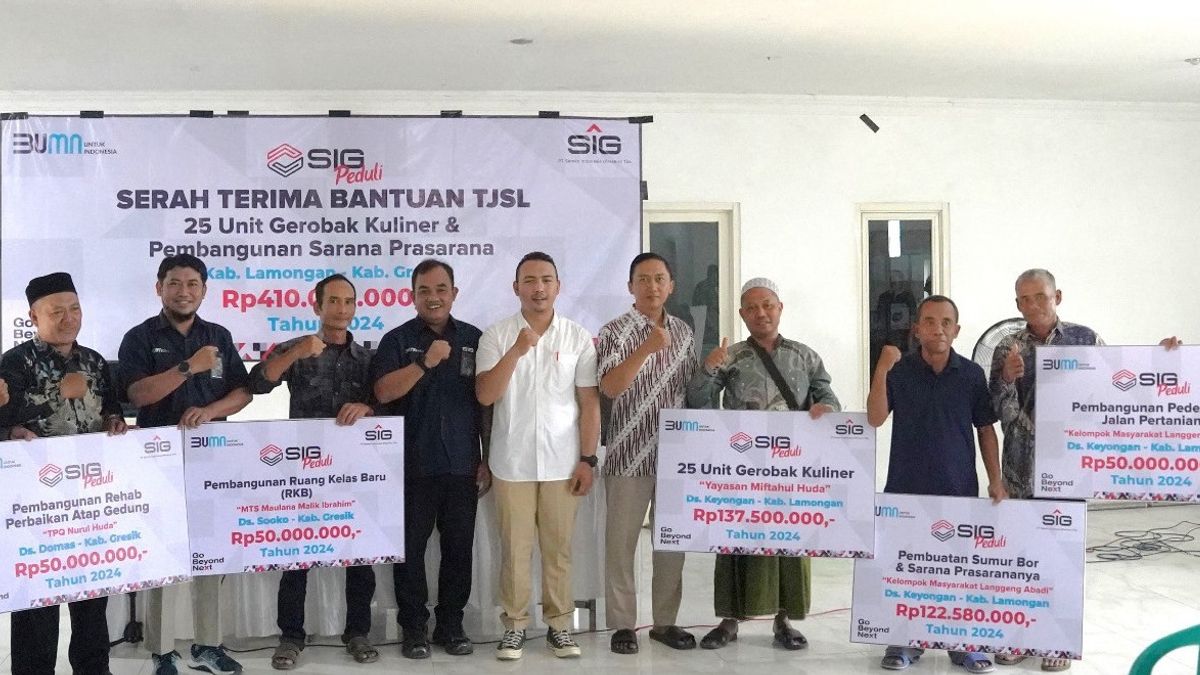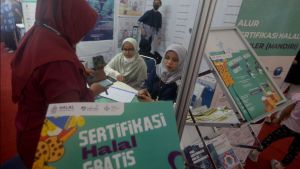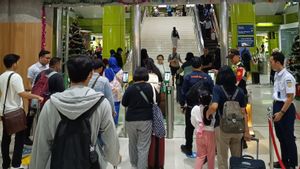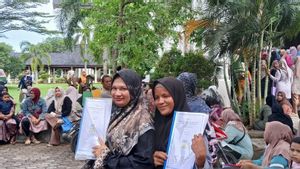JAKARTA - PT Semen Indonesia (Persero) Tbk (SIG) through the TJSL program again shows its commitment to improving the welfare of the community around the company's operational areas through the distribution of assistance provided to micro-enterprises, agricultural infrastructure development, and improving the quality of educational facilities in Lamongan and Gresik Regencies, East Java.
The handover of aid was carried out in Rejosari Village, Deket District, Lamongan Regency, East Java, on Friday, October 18.
The handover of this GIS assistance was given by General Manager of CSR SIG, Edy Saraya to the Chairman of the Miftahul Huda Foundation, Syaikhu; Chairman of the Langgeng Abadi Community Group (Pokmas), Hariyanto; Head of TPQ Nurul Huda, Sholikan; and Head of MTs Maulana Malik Ibrahim, Hilal Badri.
The assistance includes 25 meatball carts handed over to the Miftahul Huda Foundation, assistance for the construction of agricultural roads by pedelization and the construction of two rice fields irrigation bore wells given to the Langgeng Abadi Community Group (Pokmas). This assistance is focused on the people of Keyongan Village, Babat District, Lamongan Regency.
In addition, the revitalization of the Nurul Huda Al-Quran Education Park (TPQ) building in Domas Village, Menanti District, Gresik Regency, as well as the construction of a new classroom for MTs Maulana Malik Ibrahim in Sooko Village, Gresik Regency.
GIS Corporate Secretary, Vita Mahreyni explained, through the initiative of a sustainable Social and Environmental Responsibility (TJSL) program, GIS is not only focused on education, but also contributes to other sectors, such as micro business development and agricultural infrastructure. This is in line with the function of GIS as a state-owned company to play an active role in supporting the improvement of community welfare.
"SIG strives to always be present to provide wider benefits for the community. In addition to improving educational facilities and infrastructure, we also support the development of micro-enterprises to strengthen the local economy. On the other hand, the development of agricultural road infrastructure is very important for smooth distribution of crops and encouraging productivity of farmers, as well as revitalizing educational facilities to create a better learning environment," said Vita Mahreyni, in her statement, quoted Friday, October 25.
Recipients of assistance in Keyongan Village, Babat District, Lamongan Regency, Syaikhu, who is the Chairman of the Miftahul Huda Foundation, expressed his gratitude for the assistance of 25 meatball carts given by GIS. His party admitted that there were many complaints from small business actors there.
"We are very grateful for the help of the meatball cart from GIS. This assistance really helps small traders in Keyongan Village who previously had difficulty with facilities for selling such as carts, tables, the majority of which had been damaged and used makeshift facilities," said Syaikhu.
As a resident of Keyongan Village, his party also highly appreciates the construction of a 300-meter and 2-meter-wide farming business road that facilitates access for farmers.
"Now, motorbikes and small cars can pass, making the transportation of harvests much easier, so farmers don't need to carry unhulled rice from the fields," he added.
Meanwhile, for the construction of drill wells, Syaikhu assessed that this assistance was very appropriate.
This well will irrigate about 14 hectares of rice fields, this is like giving new hope for farmers to prevent crop failure in the dry season, because most of the rice fields here rely on irrigation from the rain. We are very grateful, SIG is the first to provide assistance like this. Hopefully SIG will progress and continue to help the community," concluded Syaikhu.
SEE ALSO:
The same thing was also conveyed by Sari Murni, a resident of Keyongan Village who received the help of a meatball cart from GIS. The mother of two children who had been selling pentol kuah in front of her house for seven years admitted that she was limited when selling with makeshift equipment.
"The location of my house that is close to the diniyah madrasah makes my customers partly children," said Sari Murni.
With the help of carts from GIS, Sari Murni admitted that she was increasingly enthusiastic about selling while still carrying out her role as a housewife. She even plans to develop her business by adding a meatball menu.
"I hope that with this cart, my income can increase to help my husband who works as a farmer, especially for the education costs of my second child who is still in elementary school," said Sari Murni.
The English, Chinese, Japanese, Arabic, and French versions are automatically generated by the AI. So there may still be inaccuracies in translating, please always see Indonesian as our main language. (system supported by DigitalSiber.id)
















